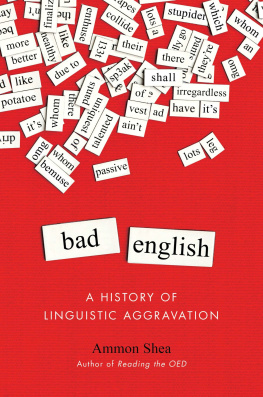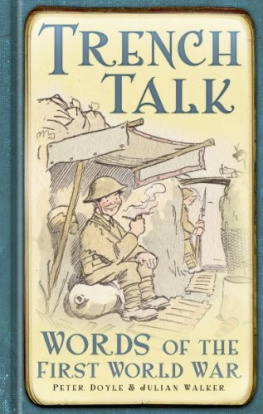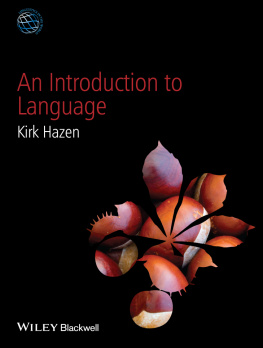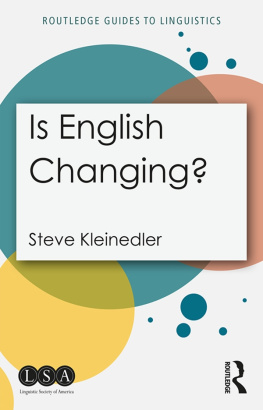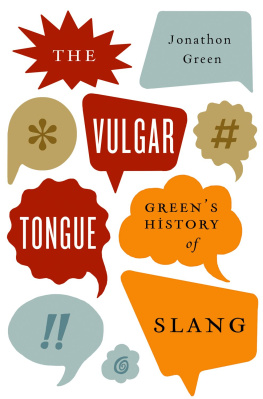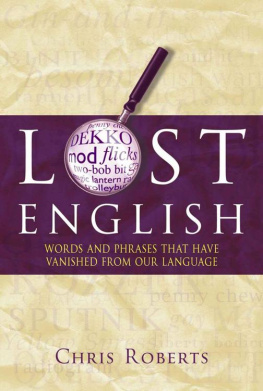PRAISE FOR
Reading the OED
by Ammon Shea
Oddly inspiring... This is the Super Size Me of lexicography.... Shea has walked the wildwood of our gnarled, ancient speech and returned singing incomprehensible sounds in a language that turns out to be our own.
Nicholson Baker, The New York Times Book Review (August 3, 2008)
Readworthy... features such far-out selections from the Oxford English Dictionary as goat-drunk, made lascivious by alcohol.
William Safire, The New York Times Magazine
[Shea] aspires to be the David Blaine of wordland.... He tends to favor the truly rare and obsoletewords that the language has shed like flakes of dead skinbut many are beauties nonetheless.
James Gleick, The New York Review of Books
Delicious... a lively lexicon.
O, The Oprah Magazine
Shea, an avid collector of words, displays an assortment for our pleasure as he wends his way through the alphabet.
The Boston Globe
Reading the OED is far more than a sort of Cliffs Notes to one of the worlds largest books.... As [Shea] approaches z, the reader is rooting for him with the enthusiasm usually associated with a marathon runners entrance into the stadium.
The Miami Herald
A charmingly good-natured and delightfully engrossing tour of the OED. Ammon Shea is the ideal reader that all dictionary editors are secretly writing for. Let him show you around... you wont regret it.
Erin McKean, Editor, Verbatim: The Language Quarterly
Ammon Shea has plundered the dark recesses of the Oxford English Dictionary and brought us back lexical gold.... Not to be a bully-scribbler, but Im telling you: Dont be a bayardread this book!
Martha Barnette, cohost of public radios A Way with Words
A PERIGEE BOOK
Published by the Penguin Group
Penguin Group (USA) LLC
375 Hudson Street, New York, New York 10014

USA Canada UK Ireland Australia New Zealand India South Africa China
penguin.com
A Penguin Random House Company
Copyright 2014 by Ammon Shea
Penguin supports copyright. Copyright fuels creativity, encourages diverse voices, promotes free speech, and creates a vibrant culture. Thank you for buying an authorized edition of this book and for complying with copyright laws by not reproducing, scanning, or distributing any part of it in any form without permission. You are supporting writers and allowing Penguin to continue to publish books for every reader.
PERIGEE is a registered trademark of Penguin Group (USA) LLC.
The P design is a trademark belonging to Penguin Group (USA) LLC.
eBook ISBN 978-1-101-62552-1
Library of Congress Cataloging-in-Publication Data
Shea, Ammon.
Bad English : a history of linguistic aggravation / Ammon Shea.
pages cm
ISBN 978-0-399-16557-3 (hardback)
1. English languageErrors of usageDictionaries. 2. English languageUsageDictionaries. 3. English languageSlangDictionaries. 4. English language Obscene wordsDictionaries. 5. InvectiveDictionaries. 6. Vocabulary. I. Title.
PE1460.S5173 2014
428.2dc23 2014005397
First edition: June 2014
Text design by Laura K. Corless
While the author has made every effort to provide accurate telephone numbers, Internet addresses, and other contact information at the time of publication, neither the publisher nor the author assumes any responsibility for errors, or for changes that occur after publication. Further, the publisher does not have any control over and does not assume any responsibility for author or third-party websites or their content.
Version_1
For Alix and Ogden, my pluperfect and future perfect both.
contents
Chapter 1
Chapter 2
Chapter 3
Chapter 4
Chapter 5
Chapter 6
Chapter 7
introduction
Linguistic pet peeves require two things in order to survive and flourish: constant maintenance and the blood of a freshly wounded language. If the people who are peeved about a perceived language misuse do not remain vigilant, the issue is likely to slip from the awareness of the general public. And if the misuse is not repeated often enough, the peeve becomes irrelevant.
Anything that is worth fighting over is also worth celebrating. The aim of this book is to examine a number of the issues commonly thought of as mistakes in English usage and to see how these mistaken forms have been used over the past five hundred years in ways both eloquent and awkward. It is presented as a history of the things that we think are correct, the reasons why we think them so, and a celebration of the marvelously flexible language that has allowed room for such myriad forms.
According to those who sit up at night worrying about the state of our language, English has been headed to hell in a hand basket for a very long time. From the stubborn continuity of English, however, it seems clear that either (a) we are in an exceedingly slow hand basket or (b) the language will not break, no matter how willfully we mistreat it.
For hundreds of years we have been hearing a familiar litany of complaints: The language is being weakened by foreign imports, the failure to distinguish between similar words will lead to some devastating lack of specificity, young people are debasing the language with slang, Americans are ruining the Kings English, improper grammar will lead to an inability to communicate beyond the most basic level of grunts. Yet in spite of all the indignities that we have heaped upon the English language, it continues to thrive and grow in rather magnificent fashion.
A good number of the complaints that one hears about language usesuch as avoiding overly long wordshave been constant for hundreds of years. Many otherssuch as the distinction between shall and willhave largely fallen by the wayside and now appear to us as historical curiosities, rules about which we scratch our heads and wonder why they once had people so bothered. Some complaints are modern creations, such as the hand-wringing over how the Internet and the use of text messaging are robbing our youth of the ability to write or think in phrases that exceed 140 typographic characters. Throughout all of this there are but two things that have remained constant: The English language continues to change and a large number of people wish that it would not.
For five hundred years speakers of English have been arguing over, worrying about, and scolding each other about how the language should be used. These speakers are largely divided into two camps: those who suspect that they themselves misuse the language and feel insecure about it and those who think they do not misuse the language and feel rather irritated by those who do (although there is admittedly some overlap between these two groups). In the view of the latter group, a perfect world would have a uniform standard taught to everyone, and there would be some authoritative guide that could enforce linguistic perfection, a sort of almanac for the language that could instantly settle any dispute about the use of a word or turn of a phrase. But then English would not be English: Our language is a glorious hodgepodge that is the result of invasion, exploration, linguistic inventiveness, and yes, simple error. And the book you hold in your hands is not an attempt to turn our language into an almanac of lists.

